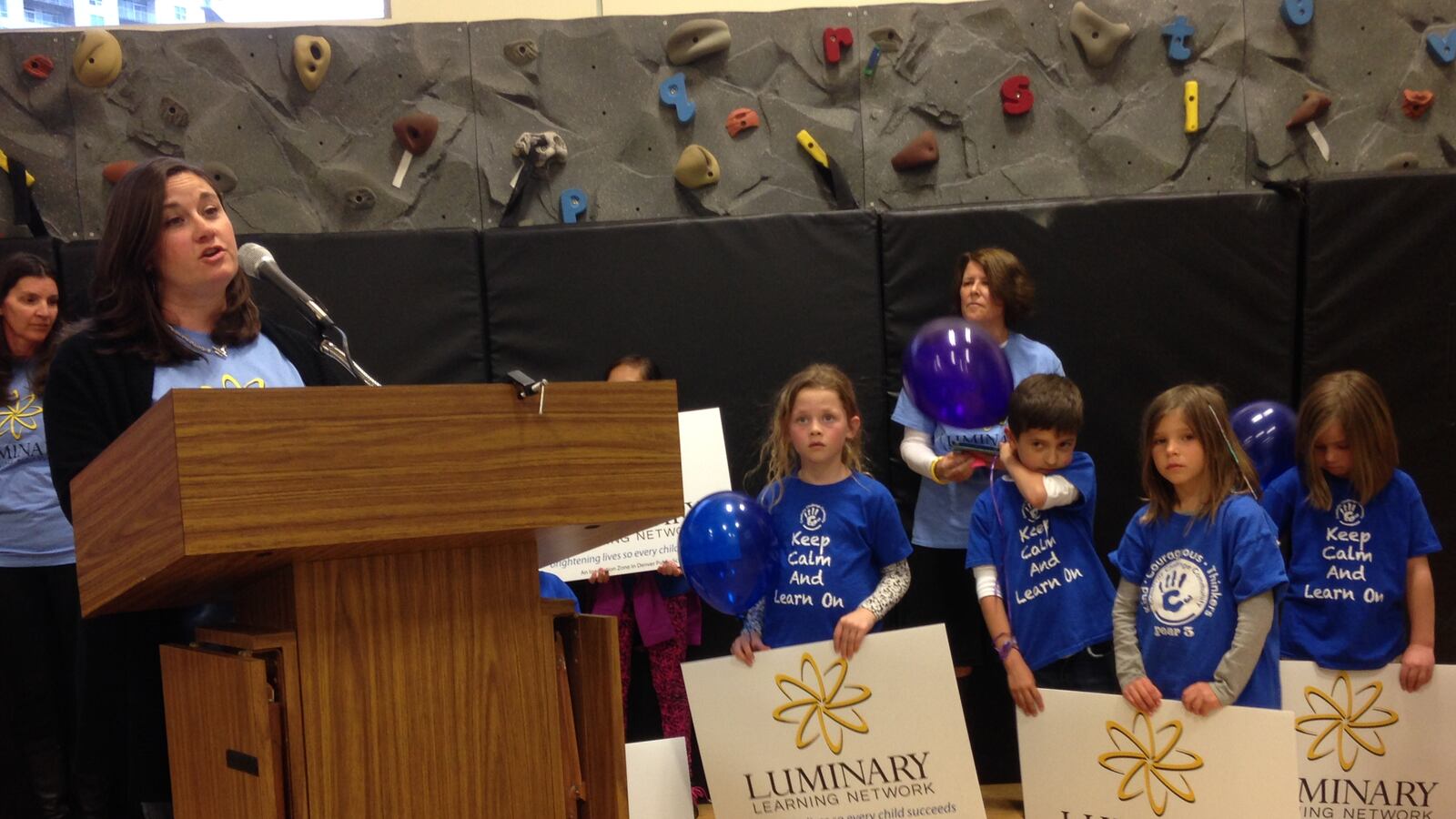Four Denver public schools will enjoy unprecedented autonomy next year after the school board Thursday unanimously approved a new “innovation zone.”
Ashley Elementary School, Cole Arts & Science Academy, Denver Green School and Creativity Challenge Community will be part of the zone, dubbed the Luminary Learning Network.
The four are already innovation schools, which means they have waivers from certain state and district rules. Those waivers grant them more sovereignty than traditional district-run schools but not as much as charter schools, which are publicly funded but independently operated. The zone will allow the four to act more like charters without separating from the district.
“This is one of the most exciting things we’ve done since I’ve been on the board,” said board member Mike Johnson. “I fundamentally believe those who are closest to the students should be making more decisions about how to educate the students.”
“I’m trying to think of a time I’ve been more excited, more proud, more optimistic about what we can achieve for kids,” said board president Anne Rowe.
The schools will be overseen by a new nonprofit organization, and they’ll be exempt from “district meetings, initiatives, practices and requirements,” according to an agreement between the zone schools, the nonprofit and Denver Public Schools.
Just as revolutionary is that zone schools will have more control over how they spend the state funding attached to their students. That funding is expected to amount to $7,682 per student next year, according to the district’s proposed budget.
This year, the district held back about $2,000 per student from each of the four schools to pay for things like curriculum, teacher training and administrator salaries.
Next year, the zone schools can choose to opt out of centralized district services other district-run schools must pay for, such as help with website design, reorganization of school libraries and advice on staffing decisions.
If the zone schools turn down all the optional services, they’ll receive about $350 more per student, according to the district. The schools can use that money to either buy those services back from the district or purchase their own.
DPS is predicting an estimated $600,000 funding loss because of that flexibility, although it may get some money back if the zone schools buy district services.
The nonprofit can also raise money for the schools.
Students, parents and teachers from the four schools made their case to the school board Thursday. They wore light blue T-shirts with the Luminary Learning Network logo, a yellow star, in the center. To each board member, they handed a T-shirt and a paper bag luminary.
“The move of forming the (Luminary Learning Network) puts us as school leaders and teachers in the driver’s seat of what we believe to be best for our students,” said Frank Coyne, a leader at Denver Green School. “I’m really proud of that. I feel like we’re on the cusp of something big.”
Innovation zones were created by a 2008 state law that also created innovation schools. While there are 40 innovation schools in DPS, and more than 20 others elsewhere in Colorado, the state only has three other innovation zones. Several school districts, including Aurora and Pueblo, are considering them as a strategy to improve low-performing schools.
What’s unique about the Denver zone is that the four schools aren’t in trouble. Instead, the school leaders said they banded together to form the Luminary Learning Network after encountering pushback and mandates from the district they felt hindered their autonomy.
The board’s vote authorized the zone for three years. Existing innovation schools are allowed to join it if the zone schools think they are a “good fit.”
In exchange for more autonomy, the zone schools will be subject to higher achievement goals. Per the agreement, the schools must seek to move up one tier on the district’s color-coded school rating system by the end of three years.
Ashley and Cole are currently rated yellow, the third-highest tier out of five, while Creativity Challenge Community and the Denver Green School are rated green, the second highest. The agreement notes that since the green tier is so wide and getting to the highest level might not be plausible, the district and the zone will work together to figure out what is.
Other action the DPS school board took Thursday:
— The board voted unanimously to delay the openings of two schools: the Near Northeast Community Engagement School and a new STRIVE Prep elementary in the far northeast.
The schools were supposed to open this fall but will now open in the fall of 2017. Both schools had lower than expected enrollment, according to school officials. Chris Gibbons, the CEO and founder of the STRIVE charter school network, said his school’s leader also unexpectedly stepped down.
“We believe students and families deserve a strong start,” Gibbons said.
This is the second delay for both schools, which were originally slated to open in the fall of 2015.
— The board unanimously approved the contracts of four charter schools it renewed in December 2015: Odyssey School, STRIVE Prep – Lake, Venture Prep High School and Denver Justice High School. It also amended several other charter contracts.

